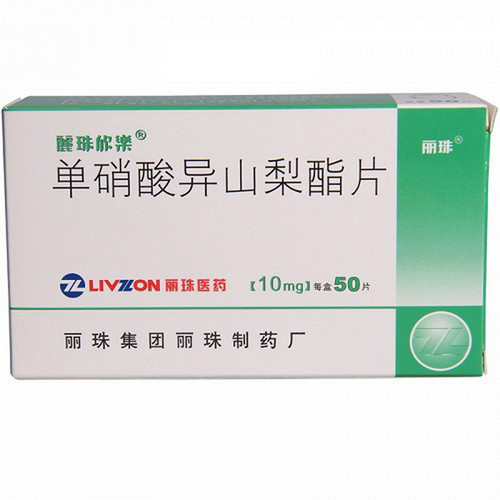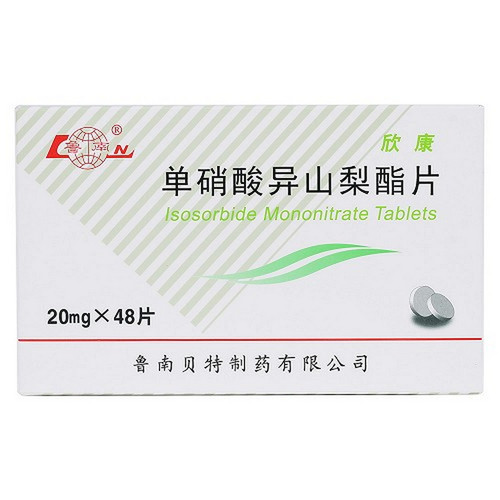Product Overview
[Drug Name]
Generic Name: Isosorbide Mononitrate Tablets
Trade Name: Xintai Isosorbide Mononitrate Tablets 10mg x 48 Tablets
[Main Ingredients]
Chemical name: 1,4:3,6-dianhydro-D-sorbitol-5-mononitrate. Molecular formula: C6H9NO6. Molecular weight: 191.14
[Indications/Main Functions]
Long-term treatment of coronary heart disease; prevention of angina pectoris; treatment of persistent angina pectoris after myocardial infarction; combined with digitalis or diuretics for the treatment of chronic congestive heart failure.
[Specifications]
10mg x 48 tablets
[Dosage and Administration]
Tablets: Oral administration: 10-20mg once, 2-3 times daily. In severe cases, 40mg can be used, 2-3 times daily.
[Adverse Reactions]
Vasodilatory headaches caused by nitrates may occur initially, but these symptoms usually disappear after several days of continuous use. Facial flushing, dizziness, orthostatic hypotension, and reflex tachycardia may also occur. Rarely, significant hypotension, bradycardia, worsening angina, and syncope may occur.
[Contraindications]
Acute circulatory failure (shock, circulatory collapse); severe hypotension (systolic pressure <90 mmHg); acute myocardial infarction with low filling pressures (unless under continuous hemodynamic monitoring); hypertrophic obstructive cardiomyopathy; constrictive pericarditis or cardiac tamponade; severe anemia; glaucoma; increased intracranial pressure; and hypersensitivity to nitro compounds.
[Drug Interactions]
Combined use with other vasodilators, calcium antagonists, beta-blockers, antihypertensive drugs, tricyclic antidepressants, and alcohol may potentiate the hypotensive effect of this drug class.
[Precautions]
In patients with acute myocardial infarction and low filling pressures, avoid systolic blood pressure below 90 mmHg. Use with caution in patients with aortic or mitral stenosis, postural hypotension, and renal insufficiency.
[Pediatric Use]
Studies of this class of drugs have been conducted exclusively in adults. Comparative data on use in children and adults are unavailable, so their use in children is not recommended.
[Elderly Use]
Elderly patients may be more sensitive to this class of drugs and more susceptible to reactions such as dizziness.
[Pharmacology and Toxicology]
Isosorbide mononitrate (ISMN) is the primary bioactive metabolite of isosorbide dinitrate. Like other organic nitrates, its primary pharmacological action is to relax vascular smooth muscle. ISMN releases nitric oxide (NO), which, like endothelial relaxing factor, activates guanylate cyclase, increasing cyclic guanosine monophosphate (cGMP) in smooth muscle cells. This relaxes vascular smooth muscle, dilating peripheral arteries and veins and enhancing the venous dilation effect. Venous dilation results in blood retention in the periphery, reducing venous return and lowering left ventricular end-diastolic pressure and pulmonary capillary wedge pressure (preload). Arterial dilation reduces peripheral vascular resistance, systolic arterial pressure, and mean arterial pressure (afterload). Coronary artery dilation increases coronary perfusion. The overall effect is reduced myocardial oxygen consumption, increased oxygen supply, and relief of angina pectoris. No carcinogenic or mutagenic effects have been observed in animal studies.






